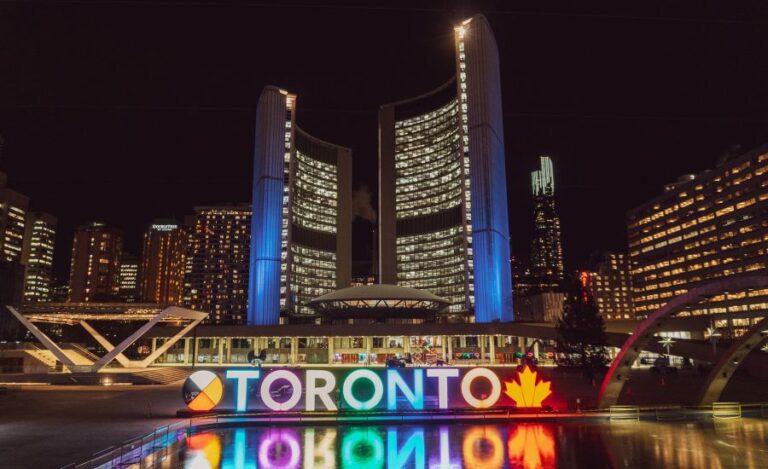What is The Difference between Restaurant And Hotel?
With the rise in travel enthusiast and foodies, restaurant and hotel are the key components of their life.
Well, it is not hard to find the difference between a restaurant and a hotel. They are like two stars shining in the night sky, each establishment possesses its own brilliance, leaving an indelible mark on the experiences they create for their guests.
Therefore, today I will reveal the broad range of their products and services, the uniqueness of their offerings, and the magical environment they create for those who enter.

What Is Restaurant?
A restaurant is a business where prepared food and drinks are supplied to patrons to consume on the premises. It usually offers a menu with a selection of dishes and drinks, allowing customers to choose their favourites from the available choices.
Additionally, Restaurants come in various formats, ranging from casual dining and fast-food joints to fine dining establishments and can cater to different themes, cuisine and target audience.
Also Read: 10 Best Fast Food Job For 17 Year Old
How Restaurant Work?
- Menu Planning and Preparation: Restaurants start by designing their menus, which include a variety of dishes and beverages they plan to offer to customers. The menu selection is based on the type of cuisine they specialize in and the target audience they wish to attract. Once the menu is finalized, the restaurant staff, including chefs and cooks, prepare the dishes using fresh ingredients, adhering to specific recipes and quality standards.
- Front-of-House Operations: The front-of-house operations involve all interactions between the restaurant staff and the customers. This includes welcoming guests, taking their orders, providing recommendations, and ensuring a pleasant dining experience. The waitstaff play a crucial role in serving food and drinks promptly and attentively, addressing any customer inquiries or concerns, and handling the billing process.
- Ambiance and Atmosphere: Restaurants pay great attention to the ambiance and atmosphere they create to complement their culinary offerings. The decor, lighting, music, and seating arrangements are all carefully considered to match the restaurant’s concept and provide a pleasant environment for customers.
- Kitchen Management: The kitchen is the heart of any restaurant, where the culinary magic happens. The kitchen staff, including chefs, sous chefs, and line cooks, work together to ensure efficient food preparation, maintaining quality and consistency in each dish. Proper kitchen management, organization, and communication are essential to keep the restaurant running smoothly.
- Health and Safety: Restaurants must adhere to strict health and safety regulations to ensure the well-being of both customers and staff. This includes maintaining proper hygiene, food storage, handling practices, and regular inspections to meet health department standards.

What Is Hotel?
A hotel is an establishment that provides lodging accommodations such as rooms or suites for individual or group to stay overnight or longer, along with various services and amenities, to travellers and guests.
Furthermore, the level of services and amenities offered can vary depending on the type of hotel (budget hotel or luxury hotel) you are visiting. As, Hotels prioritize guest comfort, providing a welcoming and comfortable environment for visitors to relax and enjoy their stay away from home.
How Hotel Works?
- Reservations and Check-In: Guests typically book hotel rooms in advance through various channels, such as online booking platforms, travel agencies, or direct calls to the hotel. Upon arrival, guests check in at the reception desk, where they are provided with room keys and necessary information about the hotel’s facilities and services.
- Accommodation and Housekeeping: Providing comfortable and clean accommodations is a primary function of hotels. Housekeeping staff ensure that rooms are well-maintained, cleaned regularly, and stocked with essential amenities to meet guests’ needs.
- Front Desk Services: The hotel’s front desk staff are responsible for assisting guests throughout their stay. They handle inquiries, provide recommendations for local attractions, assist with transportation, and address any issues or requests guests may have.
- Food and Beverage Services: Many hotels have their own restaurants and bars where guests can dine and enjoy various cuisines. Room service is also a common feature, allowing guests to order food and beverages directly to their rooms.
- Amenities and Facilities: Hotels offer a range of amenities and facilities to enhance guests’ experiences during their stay. These may include fitness centers, swimming pools, spa and wellness services, business centers, conference rooms, and more.
- Event and Conference Hosting: Hotels often serve as venues for events, conferences, weddings, and other gatherings. They have dedicated event spaces and teams to handle event planning, catering, and logistics.
- Check-Out and Billing: At the end of their stay, guests check out of the hotel. The front desk staff handle the check-out process, settle any outstanding bills, and ensure that guests have had a satisfactory experience during their stay.
What Is The Difference Between Restaurant And Hotel?
Restaurants and hotels are two distinct types of establishments within the hospitality industry, each serving unique purposes and catering to different aspects of the customer experience. Let’s delve into the details of their differences to understand how they operate and what sets them apart:
1. Purpose
The key distinction between a restaurant and a hotel is their aim. The primary goal of a restaurant is to provide clients with prepared food and beverages for consumption on the premises. It is essentially a place where people go to eat, either to socialize over a meal or to indulge in gastronomic delights.
On the other hand, a hotel’s main objective is to offer lodging to visitors and tourists. While hotels may have restaurants on the property, their primary purpose is to provide a location for guests to stay and rest, making them an essential component of the hospitality industry.
2. Services Offered
In a restaurant, the primary service revolves around food and beverage offerings. Customers visit restaurants to explore and savor various dishes, ranging from local specialties to international cuisines.
The menu is the center piece, and the ambiance, decor, and service are tailored to create an enjoyable dining experience. Restaurants may offer various dining formats, such as fast-casual, casual dining, or fine dining, each with its unique atmosphere and price range.
Hotels, on the other hand, provide a wide range of services beyond just accommodation. Along with lodging, hotels often offer additional amenities and facilities to enhance guests’ comfort and convenience.
These may include room service, concierge assistance, spa and wellness centers, fitness facilities, swimming pools, business centers, meeting rooms, and more. Hotels aim to create a comprehensive guest experience, catering to the various needs and preferences of travellers during their stay.
Also Read: How To Get Part-Time Job In Retail Without Experience?
3. Ambiance and Atmosphere
Restaurants focus on creating a specific ambiance and atmosphere that complements their culinary offerings and theme. The decor, lighting, music, and overall setting are carefully curated to match the restaurant’s concept and provide an enjoyable dining experience.
For example, a fine-dining restaurant may have elegant interiors and soft lighting to create an intimate and sophisticated ambiance, while a casual restaurant might have a more relaxed and vibrant atmosphere.
Hotels, on the other hand, aim to offer a welcoming and comfortable environment for guests to feel at home away from home. The decor and ambiance are designed to appeal to a broader audience and accommodate diverse traveler preferences. Hotels often incorporate a mix of modern conveniences and classic elements to create a balance between functionality and aesthetics, catering to a wide range of guests, including families, business travelers, and leisure seekers.
4. Duration of Stay
One of the key distinctions between restaurants and hotels is the duration of the visit. In a restaurant, the typical duration of a visit is relatively short, ranging from a quick meal during lunchtime to a more extended dining experience during dinner. Customers come for a specific meal and then depart once they have finished dining.
Conversely, hotels cater to guests looking for overnight or extended stays. Travelers choose hotels as their temporary residence during their travels or when visiting a specific location. The duration of a hotel stay can range from a single night to several weeks, depending on the purpose of the visit and the traveler’s itinerary.
5. Business Model
Restaurants often operate on a standalone basis, with their revenue primarily generated from food and beverage sales. They may also offer take-out and delivery options to expand their customer reach and revenue streams.
Hotels, as multifaceted establishments, have a more complex business model. In addition to room revenue, they generate income from various sources, including food and beverage services, event and conference bookings, spa and wellness offerings, and other amenities.
Also Read: 12 Steps To Simplify Financial Planning
Is Restaurant Business More Profitable Than Hotels?
Yes. Restaurant business are more profitable compared to hotels due to lower overhead costs. But a restaurant business’s success also depends on many factors such as the cuisines, demand, location, seasonality and branding of the business.
For example, if you are living in Vancouver, you must know about Tap and Barrel Restaurant, one of the most-running restaurants downtown. And as per my analysis, the major reason for the success is the stunning view and the cruise ship’s passengers.
Furthermore, hotel business can have higher occupancy rates and diverse revenue stream that can boost the profitability of the business but the maintenance cost are much high then restaurants.
Also Read: How Much Income Do You Need To Be Rich?
Final Word
Finally, I hope you get a detailed over view of what to expect while thing of starting a business in both the sections of the hospitality industry. Well, in terms of profitability, the restaurant business are more successful as the cost of invest is low and the returns are high.
But with hotels, the initial investment is way too high which makes the entrepreneurs to avoid starting a hotel business. Furthermore, you can be successful in both the industry if you take the right approach towards management, marketing and financing process.
Wish You Luck for you entrepreneurial journey.







